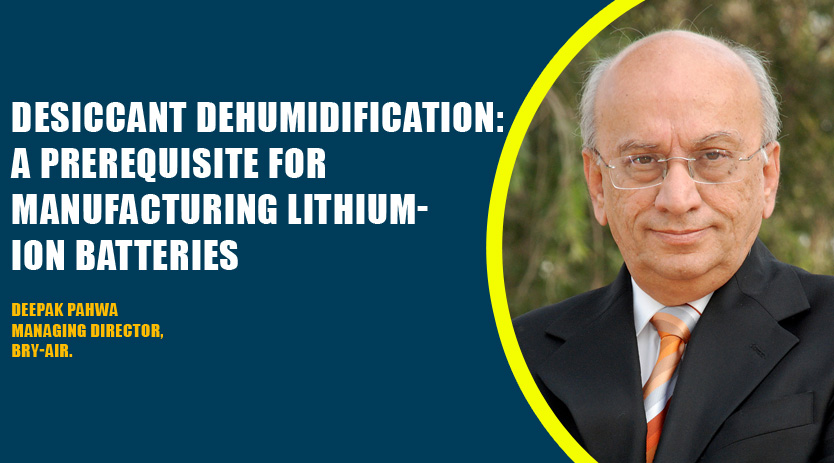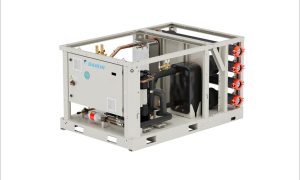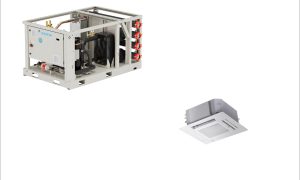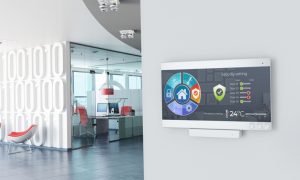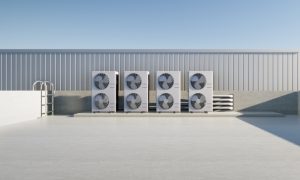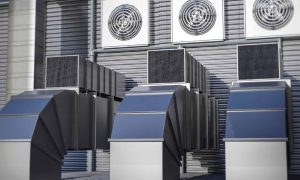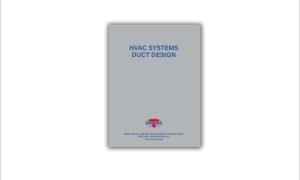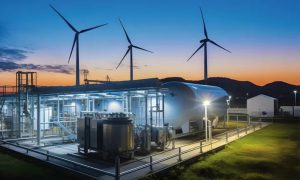Li-ion batteries are preferred for their safe charging and discharging energy ability and the minimum time required for charging.
The EV industry is gaining popularity like never before. Global initiatives are being undertaken to make inroads for better EV penetration. As the world is moving towards a greener solution, even India is emerging as an active participant in undergoing this EV transformation. Though in a very nascent stage, the country has pledged to become the EV first nation by 2030.
The government is moving with leaps and bounds to bring about progressive reformations to spur EV penetration in the country. In this attempt to make India an EV-resilient nation, the government even fast-tracked the BS norms and adopted BS-VI by skipping the BS V stage to expedite the process of the EV revolution.
Looking at the transformations happening, it can be perceived that EV is the future of the automobile industry. Electric vehicles are being sought for their green cleantech solutions that champion sustainable development by reducing the dependency on fossil fuel to run the vehicle. By running on the battery, the pressure on the environment is minimised as no harmful gases are released into the air. Here, it is essential to note that the highly advanced vehicle gets its efficiency from the distinctively competitive Lithium-ion battery. It is the primary factor guiding the unrivalled performance of the electric vehicle. Therefore, it is at the heart of the EV ecosystem.
Compared to other alternatives, Li-ion batteries are preferred for their safe charging and discharging energy ability coupled with the minimum time required for charging. All these factors are acutely strengthening the preposition of Li-ion batteries in the market and being considered by the manufacturers for their falling prices along with the advantages stated above. The Li-ion batteries make up to 40-50 percent of the total cost of an EV. As a result, it is crucial to ensure the quality of the batteries. Any fault or defect in the battery will cost the entire EV industry its poor performance.
Therefore, while venturing into the EV segment, equal attention must be paid to the battery manufacturing infrastructure. Given that the various components forming the Li-ion batteries are highly hygroscopic, Dry Rooms must be backed up with energy-efficient dehumidifiers to ensure the manufacturing of quality and competitive batteries. Considering that uncontrolled temperature and humidity are responsible for inconsistent battery performance and quality, the environment within the manufacturing unit must be monitored and regulated continuously.
As India experiences significant weather variations in different parts of the country throughout the various times of the year, where the temperature can reach as high as 40°C in certain regions, it is imperative to provide highly controlled environmental conditions with humidity of less than 1 percent. Dry Rooms are the most viable solution supported by Environment Control Dehumidification System, which ensures the relative humidity (RH) is maintained at less than 1 percent during lithium cell manufacturing and less than 10 percent during the battery assemblage. The moisture control equipment is adept at achieving shallow dew points, as low as – 800 Celsius, for processing all hygroscopic and moisture-sensitive materials.
The inability to handle the moisture menace can lead to a low-quality battery that can acutely reduce the product life and the battery’s performance. Consequently, it can intervene with the efficiency of the EV as a whole and paint a bleak picture of its acceptance in the market. In worst cases, poor-quality batteries are susceptible to an explosion, raising safety concerns.
Considering the importance of desiccant dehumidification technology, Bry-Air Dry Rooms come with the patented Environment Control Dehumidification System, Green DryPurge (GDP) series, and highly efficient Super Low Dew Point (LDP) series that provide dehumidification/ moisture control solutions in perfect confluence with a refrigeration system to maintain the desired RH within the narrow humidity bracket level.
The dehumidification solution comes with comprehensive benefits not just limited to battery manufacturing but is crucial for the entire manufacturing of electric vehicles.
Therefore, looking at the wide gamut of applications dehumidification finds in the Li-ion battery manufacturing and the manufacturing of the EV, desiccant dehumidification is a crucial technology in making inroads for electric vehicles in the country. With the enthusiasm with which the world is moving toward the EV revolution, the demand for environment-controlling advanced dehumidification solutions will escalate shortly, domestically and internationally.
The local manufacturers will have to move ahead with enthusiasm to install the advanced technology for rendering reliable, quality, and safe lithium batteries meeting international standards.
Cookie Consent
We use cookies to personalize your experience. By continuing to visit this website you agree to our Terms & Conditions, Privacy Policy and Cookie Policy.

